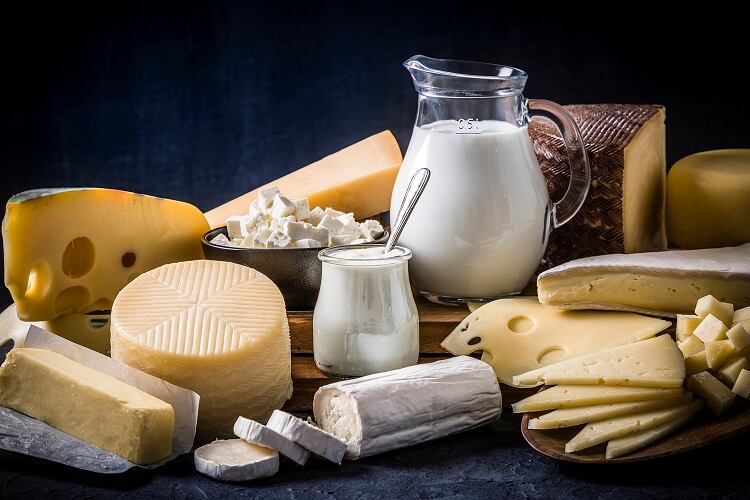Not aware of the Autoimmune Protocol diet? Don’t worry, you soon will be. The Autoimmune Protocol diet, or AIP diet, is setting social media alight, with its promises to promote weight loss and reduce inflammation. But what is the AIP diet, who should be attempting it, and how can the food and beverage industry engage with it?
What is the Autoimmune Protocol (AIP) diet?
The Autoimmune Protocol (AIP) diet is an elimination diet, designed to help reduce inflammation or other symptoms caused by autoimmune disorders. In particular, it is believed to be most effective for people with autoimmune diseases, such as lupus, inflammatory bowel disease (IBD) and rheumatoid arthritis.
The AIP diet has gained particular attention in recent years as it aims to identify foods and beverages, which trigger symptoms of autoimmune diseases, as autoimmune diseases themselves cannot be cured and so must be managed.
“AIP is aimed at individuals who have an autoimmune condition where the body’s natural defence mechanisms for protecting it begin to attack healthy tissues,” Fiona Brannigan, dietitian and founder of Inspirit Nutrition and Dietetic Consultancy, told FoodNavigator. “AIP is an elimination diet that focuses on excluding foods that are perceived to cause inflammation within the body.”
Which foods and beverages are eliminated as part of the AIP diet?
Triggers of autoimmune disease symptoms are highly individual and will vary from individual to individual. As a result, the diet calls for the removal of a huge number of foods and beverages, which are potentially problematic. These foods and beverages are then reintroduced, one at a time, over a long period of time, to identify which foods provoke a reaction in the individual.
Foods removed at the beginning of the Autoimmune Protocol (AIP) diet include all dairy products (milk, butter, cheese, yoghurt), all grains (bread, rice, pasta, barley, oats), potatoes, chocolate, alcohol, eggs, seeds, beans, nuts, legumes, dried fruits, and certain herbs and spices.
“You remain on this restrictive eating plan for a minimum of 30 days or until your symptoms disappear which could be up to 90 days,” explains Brannigan. “You then need to begin to reintroduce the excluded foods back into your diet, taking 3-4 days to reintroduce each food.”

Why are we seeing an increase in elimination diets?
FoodNavigator recently reported on the rise of interest in the Low-histamine diet, where again the emphasis is towards the removal of certain foods from the diet, in order to identify triggers.
Similarly, the rise of the gut health trend has seen consumers moving away from foods, which are deemed to be damaging to the gut, such as foods that are high in sugar. So, why are these food and beverage trends becoming more prevalent?
For some, adopting diets such as the AIP diet is a way for individuals to manage their symptoms themselves. This is particularly true when a diagnosis can be a lengthy process.
“For some conditions, sufferers struggle to get the help that they require,” says Brannigan. “They can experience debilitating symptoms, which have a huge impact on their everyday life. It can also take months, sometimes years, to get a diagnosis, with numerous visits to not only their GP but other specialist doctors and health professionals. They very often feel frustrated and overwhelmed, and get to the point where they will try anything that promises to help them.”
Furthermore, many people who have tried the AIP diet have experienced positive results and have then discussed their experience on social media.
Sophie Richards, women's health advocate and founder of The Endo Spectrum, documented her experience of the AIP diet on her Instagram page, saying, “my number one goal of the diet was to get rid of my endometriosis symptoms.”
She concluded that she has never had a flatter stomach and cinched in waist, or felt more herself, as she has since she started the diet. However, she does describe it as, “the most extreme anti-inflammatory diet” that she has ever tried.
And it’s the extreme nature of the diet, which concerns dieticians and healthcare professionals, particularly with regards to nutrient deficiencies.
“The AIP is a restrictive and challenging diet to follow (all elimination diets are!) with inadequate evidence that it is beneficial,” says Inspirit Nutrition and Dietetic Consultancy’s Brannigan. “It will undoubtedly lead to macro and micronutrient deficiencies within your diet.”
It’s therefore strongly advised that any person considering embarking on such a diet consult a health professional.
“If you do feel that what you are eating is causing the symptoms of your condition to worsen, please ask for a referral to a dietitian, or find a private dietitian via the British Dietetic Association. Please remember that dietitians are the only nutrition professionals to be regulated by law and work to a similar code of conduct to doctors.”

Opportunity for the food and beverage industry
Understanding the complexities of the AIP diet could prove invaluable to the food and beverage industry and hugely beneficial to sufferers of autoimmune diseases.
The restrictive nature of the AIP diet presents a new opportunity to food and beverage manufacturers. There is potential to create products, that are fortified with essential vitamins and minerals, but with trigger ingredients removed.
According to the Global Autoimmune Institute, an estimated 4% of the world's population has at least one autoimmune disease. Furthermore, a study published in the Lancet has concluded that the burden of autoimmune diseases “continues to increase”.





